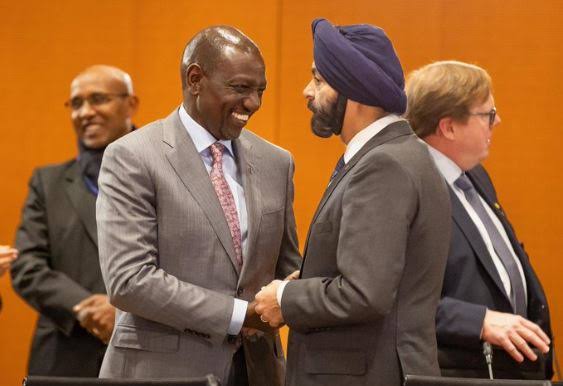Economy
Kenya Wastes Sh66,000 Daily Allowance on Civil Servants’ US Travel as World Bank Sounds Debt Crisis Alarm

NAIROBI – The World Bank has delivered a stark warning to Kenya’s government over its “wasteful spending” on public servants’ travel allowances, revealing that civil servants pocket a staggering $513 (Sh66,317) daily when traveling to the United States – nearly double what international standards recommend.
The revelation comes as Kenya’s economy teeters on the brink of a debt crisis, with the international lender expressing deep concern over the government’s financial management priorities.
In a damning assessment, the World Bank found that travel allowances consumed a massive 14% of total government spending in the 2022/23 fiscal year, with Daily Subsistence Allowance (DSA) alone accounting for Sh6.2 billion of the Sh19.6 billion spent on travel-related expenses.
“This undermines productivity as staff are frequently absent from their duty stations since the system creates incentives to seek per diems,” the World Bank stated in its report, highlighting how the generous allowance system has created perverse incentives within the civil service.
The Bank’s analysis reveals shocking potential savings if Kenya standardized its travel rates.
Using Ministry rates across all job groups would slash daily costs to $326 (Sh42,162) – a saving of $187 (Sh24,187) per official per day. Even adopting UN Development Programme rates would save $53 daily per traveler.
The allowance crisis extends beyond international travel.
The World Bank identified a fundamental flaw in Kenya’s remuneration system where market adjustment components are leading to “double compensation” – with civil servants receiving the same benefit through both their basic salary and additional allowances.
Of particular concern is how facilitative allowances have morphed from performance incentives into salary supplements, creating what the Auditor General’s office described as “widespread overuse” that fails to provide value for money.
The World Bank’s intervention comes at a critical time for Kenya’s economy, which faces mounting debt pressures and fiscal constraints.
The lender has recommended immediate reforms including budget caps on travel and conferences, standardized DSA rates across job levels, and better regulation of workshop locations and frequency.
With civil servants currently receiving 60% of wage-related expenses as salaries, 30% as remunerative allowances, and 10% as facilitative allowances, the World Bank warns that weak enforcement of Salaries and Remuneration Commission guidelines has allowed the system to spiral out of control.
The report’s findings raise serious questions about Kenya’s spending priorities as ordinary citizens grapple with economic hardship while public servants enjoy luxury travel perks that far exceed international benchmarks.
Kenya Insights allows guest blogging, if you want to be published on Kenya’s most authoritative and accurate blog, have an expose, news TIPS, story angles, human interest stories, drop us an email on [email protected] or via Telegram
-

 News1 week ago
News1 week agoTHE FIRM IN THE DOCK: How Kaplan and Stratton Became the Most Scrutinised Law Firm in Kenya
-

 Investigations2 weeks ago
Investigations2 weeks agoMulti-Million Dollar Fraud: Three Kenyans Face US Extradition in Massive Cybercrime Conspiracy
-

 Economy1 week ago
Economy1 week agoIran Demands Arrest, Prosecution Of Kenya’s Cup of Joe Director Director Over Sh2.6 Billion Tea Fraud
-

 Business2 weeks ago
Business2 weeks agoA Farm in Kenya’s Rift Valley Ignites a National Reckoning With Israeli Investment
-

 Africa2 weeks ago
Africa2 weeks agoFBI Investigates Congresswoman Ilhan Omar’s Husband’s Sh3.8 Billion Businesses in Kenya, Somalia and Dubai
-

 Grapevine6 days ago
Grapevine6 days agoA UN Director Based in Nairobi Was Deep in an Intimate Friendship With Epstein — He Even Sent Her a Sex Toy
-

 News2 weeks ago
News2 weeks agoTragedy As City Hall Hands Corrupt Ghanaian Firm Multimillion Garbage Collection Tender
-

 Arts & Culture2 weeks ago
Arts & Culture2 weeks agoWhen Lent and Ramadan Meet: Christians and Muslims Start Their Fasting Season Together

















